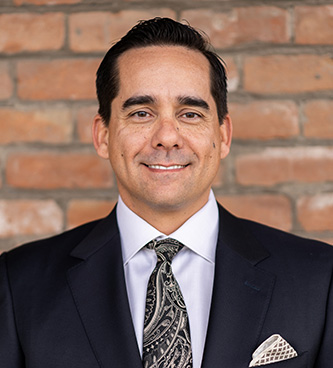Unless you have been living with no Internet or news access, you are likely aware that Congress has been conducting a formal impeachment inquiry for the past three months. And yesterday, President Trump became just the third U.S. president in our Nation’s history to be impeached. Some of you might recall studying “checks and balances” in middle school history class. Well, the legislative branch’s power to impeach executive branch officials, including the president, acts as the ultimate “check” on the actions of the executive branch.
Regardless of your political affiliation, these are curious times in our country. Because presidential impeachments are so rare, there tends to be a lot of confusion surrounding this doctrine. With everything happening in our nation’s politics, we, at Torgenson Law want our readers to remain informed, especially about anything related to the law. So, if you are generally confused about Congress’ ability to impeach the president, what it means, and the process moving forward here are a few things you should know…
Congress derives its impeachment authority from the U.S. Constitution. Contrary to what some people believe, impeachment does not actually mean forceful removal from office. After all, two former presidents, Andrew Johnson and Bill Clinton, were both impeached while in office, yet they both completed their respective terms. Instead, impeachment actually refers to the filing of formal charges against the president. It is comparable to an indictment for a crime, which will lead to a trial.
In President Trump’s case, the impeachment process formally began when Speaker of the House of Representatives, Nancy Pelosi, announced a formal impeachment inquiry on September 24, 2019. The purpose of the inquiry and related investigation, depositions, and hearings is to ultimately present the grounds or “Articles of Impeachment.” These are essentially the charges being brought against the President. The Constitution specifically mentions, treason, bribery, and also “other High Crimes and Misdemeanors.” Once the House presents these grounds, it holds a simple majority vote to approve the articles.
On Wednesday, the House approved two Articles of Impeachment (1) Abuse of Power; and (2) Obstruction of Congress. Because the House adopted these charges, there will now be a trial in the Senate.
The general procedure is for House impeachment managers (the prosecutors) to present the Articles of Impeachment to the Senate. Counsel for the President will then dispute the charges and both sides will more or less present their cases by submitting evidence, examining witnesses, etc. Chief Justice John Roberts will preside over the trial and Senate members will act as a jury. Ultimately, the Constitution requires a two-third vote in Senate to remove the President from office.
There are no set rules for how and when the Senate trial will begin, and only time will tell how these proceedings will unfold. We do hope you found this informative, and as always, if you or a loved one has suffered personal injuries, call Torgenson Law at (602) 726-0747.
Looking for Torgenson Law updates on your social media feed? Give us a follow on:

John Torgenson is a highly experienced personal injury lawyer with over 20 years of practice in Arizona. He earned his Bachelor’s degree from the University of Utah and his Juris Doctor from Notre Dame. John has a proven track record of securing substantial verdicts and settlements, including an $8.25 million recovery for a gunshot injury victim. His expertise has earned him AVVO ratings and recognition as a Super Lawyer.
John is also a sought-after lecturer on personal injury law, sharing his extensive knowledge with peers and aspiring attorneys. Beyond his legal practice, John is an avid golfer and actively supports organizations like the Military Assistance Mission, Arizona School for the Arts, Page Balloon Regatta, University of Arizona Foundation, Junior Achievement of Arizona, and the Tim Huff Pro Bono Golf Classic.
Passionate about advocating for injury victims, John dedicates his career to battling insurance companies and corporate interests, ensuring that the rights of those who are hurt are vigorously defended.
